The American Psychological Association’s Practice Leadership Conference occurs and annually per the APA website “is the premier event for APA and SPTA leaders to co-create transformational impact for the psychology profession and critical societal issues.” The 2023 conference occurred at the beginning of March and several IPA members were in attendance.
Our student representative-elect, Ashley Banta attended the conference. She said, “I attended APA’s Practice & SPTA Leadership Conference last week in D.C. I was very inspired by this conference, so I filmed a short video discussing my three takeaways. Please take a few minutes to watch the video below. Fun fact: I filmed it in front of the Lincoln Memorial.” Ashley also encouraged members to reflect on their why – why are you studying to become a psychologist or why are you a psychologist? You can view Ashley’s video here.
Dr. Pat DeLeon, a former APA president and friend of IPA wrote at length about the 40th annual PLC. Sharing his words with permission here. Dr. DeLeon offers some insight into the history of the conference and shares from reflections from fellow attendees.
The 40th PLC/SLC: The Practice and State Leadership Conference (PLC) continues to be the highlight of my professional year and this March it was wonderful to meet in-person with approximately 300 colleagues in Washington, DC. The last time PLC met in-person was just before COVID-19 dramatically “shut down” the nation for nearly three years. As always, I especially appreciate Dan Abrahamson’s continuing support for inviting the psychology and nursing graduate students from the Uniformed Services University (USU) – our military’s future leaders. The energy, vision, and optimism for psychology’s future expressed by those present was extraordinary. And as always, a wide range of critical issues were discussed. Given the increasing importance of licensure mobility in this era of telehealth, Alex Siegel noted that almost all of health care professions are now pursuing the compact approach similar to PSYPACT. And, at her White House Wine Social, Katherine McGuire noted that the Psychology PAC is off to an exciting start with our colleagues having contributed over $30,000 so far towards the ultimate goal of $110,00 by the end of the year.
In 2007, Practice Directorate leaders Mike Sullivan, Russ Newman, and Dan published an article in Psychological Services providing the history and aspirations for what was then named the annual State Leadership Conference (SLC). Its dramatic success over time (57 colleagues attended the initial conference) reflected the growth and maturation of critical advocacy agendas for the practice community. SLC represented an impressive grass roots effort which has resulted in an ever-expanding beneficial partnership between APA and the State, Provincial, and Territorial Psychological Associations (SPTP). They reported that prior to SLC, “an atmosphere of restiveness and discontent was prevalent among many leaders of psychology’s practice community. They believed that APA was not doing enough to meet the needs of its practitioner members who were providing health care services.” In retrospect, over the years, the conferences have accomplished many of their objectives including advocacy training, networking, creating synergy, building stronger SPTAs; and equally importantly, offering a Transformative or Career Altering Experience.
Dan: “When I think about the 40-year history of PLC/SLC I marvel at the leadership that made it happen. When I attended my first PLC in 1991, I was taken by the intensity that Bryant Welch, the first Executive Director of the Practice Directorate, infused into his remarks to state, provincial, and territorial association leaders. When Russ took over the helm in Practice a couple of years later, he brought an exquisite level of strategic thinking to how to evolve the conference into a world-class leadership and advocacy training event. At its peak, the State Leadership Conference had 700 attendees.
“Katherine Nordal, the third executive director in Practice, guided the conference through a decade of challenging times, beginning with the 2008 recession. And even though the conference shrunk in size, it never lost the ‘magic’ that so many attendees mention when they talk about how attending PLC/SLC changed the trajectories of their careers. When Jared Skillings came to the Practice Directorate as the first Chief of Professional Practice in 2018, PLC was met by the world-wide pandemic less than two years later. He navigated the conference through two virtual editions before guiding its reinterpretation and re-launch this year.
“It is not an accident that PLC/SLC has survived and flourished for four decades. That does not happen without the profound vision, passion, and commitment that the Practice Directorate’s four leaders have given to this event. It has been my true honor to have been initially inspired by Bryant and then to have worked for Drs. Newman, Nordal, and Skillings to be part of the history of this grand event.”
Beth Rom-Rymer: “For me, the most exciting and gratifying experiences that I have at PLC/SLC, now, are the moments in which I can provide mentorship to our next generation of bright, curious, ambitious, and visionary leaders. Last month, I had the good fortune to meet with several students from USU, who are committed to bringing quality psychopharmacology training to their military colleagues. Hearing their expansive hopes and dreams for their future careers was thrilling. Because I set my sights on becoming a clinical psychologist, at the age of five, it gives me enormous joy to help other psychologists realize their professional dreams, through mentoring and creating training and experiential scholarship opportunities. I have been in the Leadership Circle for the APA PAC since 2007. I had given monies to Alliant University, from 2007-2014, to fund 22 training grants in Clinical Psychopharmacology for Native Psychologists. Since 2016, I have provided significant funds for the annual administration of the medical rotations program for Prescribing Psychology Fellows at AMITA Health/Ascension Health System, in Illinois. Also, since 2016, I have provided, through APF, 63 scholarship grants (nine per year) to graduate students and practicing clinicians for their training in Clinical Psychopharmacology. Since 2021, I have provided, through the APF and the Society of Indian Psychologists (SIP), travel scholarship grants and dissertation research grants to Native Psychology graduate students. As we look back on lives well lived and look forward to creating additional chapters to our own lives, I appreciate the abundant opportunities to inspire and to be inspired by all with whom I collaborate, and all who will follow and create their own flourishing careers in Psychology and other STEM areas of study and research. As Dan so beautifully stated, PLC/SLC is truly transformational.”
Cheyenne Quilter, USU psychology graduate student: “The music was bumping, drinks were flowing, and smiles were growing as the night went on. This scene was the last night of the PLC. As not only a first-time attendee but a graduate student, I did not know what to expect at the PLC, but what I received was warmth, welcoming conversations, and new mentors. The night started when a classmate and I sat at one of the tables by the dance floor and began talking with a group of psychologists pushing for prescriptive authority bills. As the conversation ended with calendar invites being typed away, a chance for mentorship started. For graduate students, I recommend attending the PLC and other conferences where you have the opportunity to talk with a diverse range of psychologists whose thoughts and current careers may inspire the next steps in your journey to becoming a psychologist. A special thank you to those mentors at the university level who continue to push for their graduate students to attend these conferences; thank you for preparing us to have a solid foundation of mentors and passion to build our careers off of.”


 On behalf of the Disaster Response Committee, we would like to share some information about our work over the past couple of years. Although IPA had a Disaster Response Coordinator in the past, that position had been vacant for several years prior to the formation of this committee in January 2022. When the Covid-19 pandemic hit, it highlighted the need for a committee dedicated to supporting IPA members and the Iowa public in times of crisis or disaster.
On behalf of the Disaster Response Committee, we would like to share some information about our work over the past couple of years. Although IPA had a Disaster Response Coordinator in the past, that position had been vacant for several years prior to the formation of this committee in January 2022. When the Covid-19 pandemic hit, it highlighted the need for a committee dedicated to supporting IPA members and the Iowa public in times of crisis or disaster.
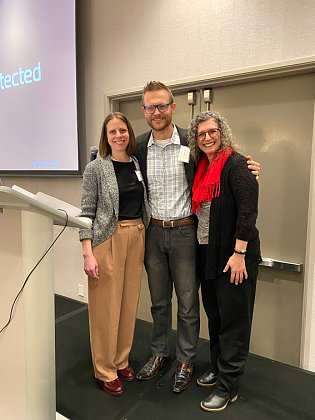
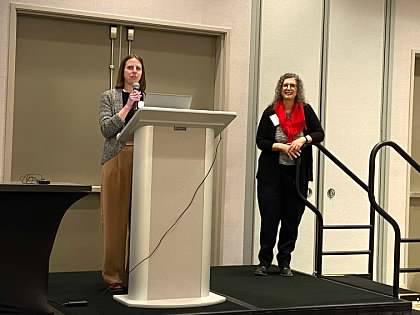
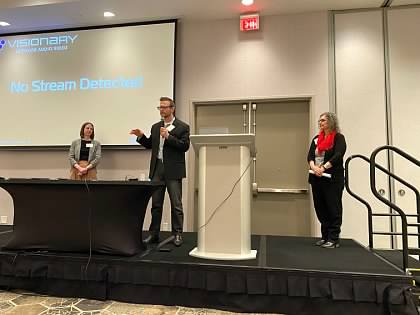

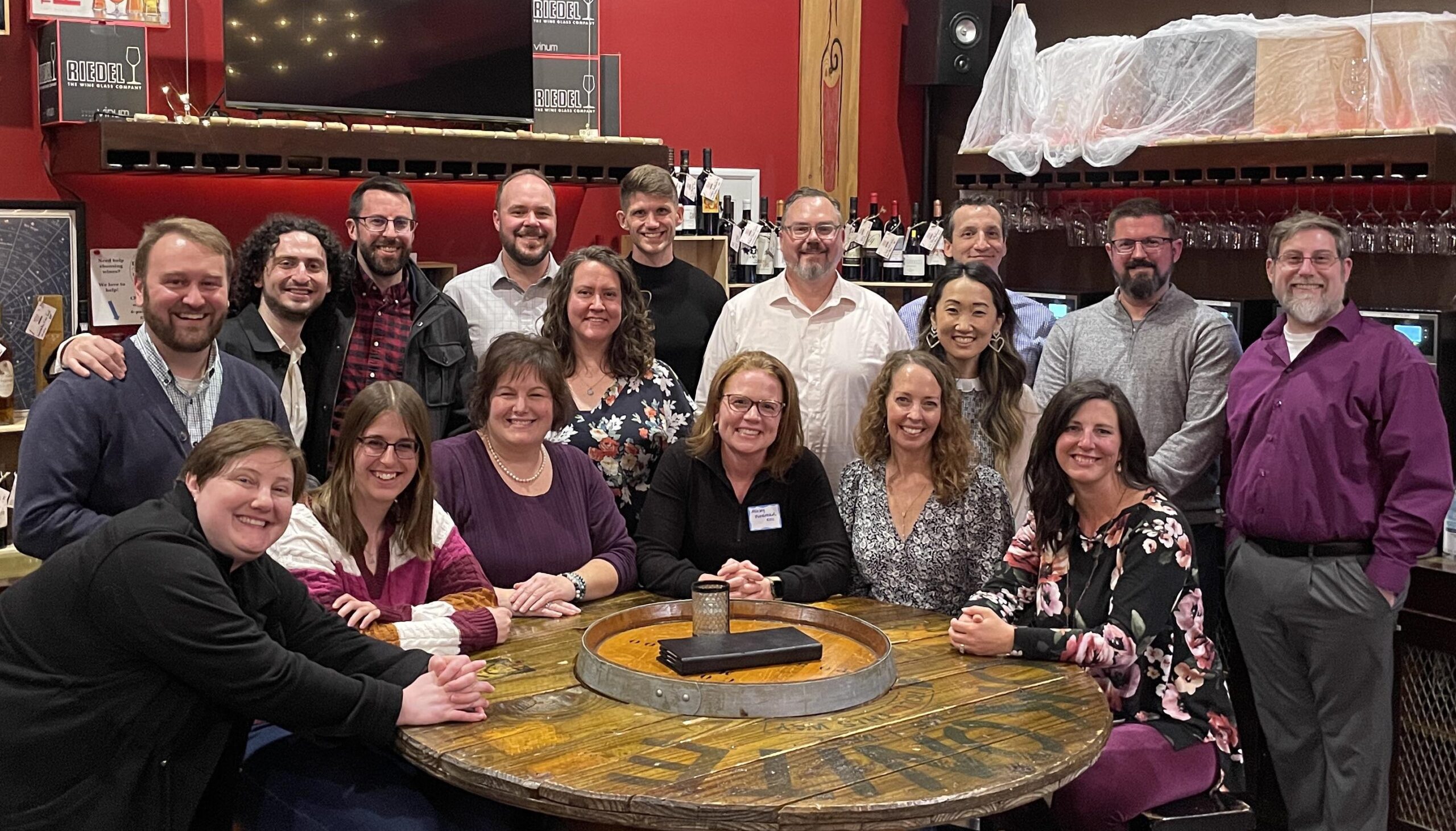
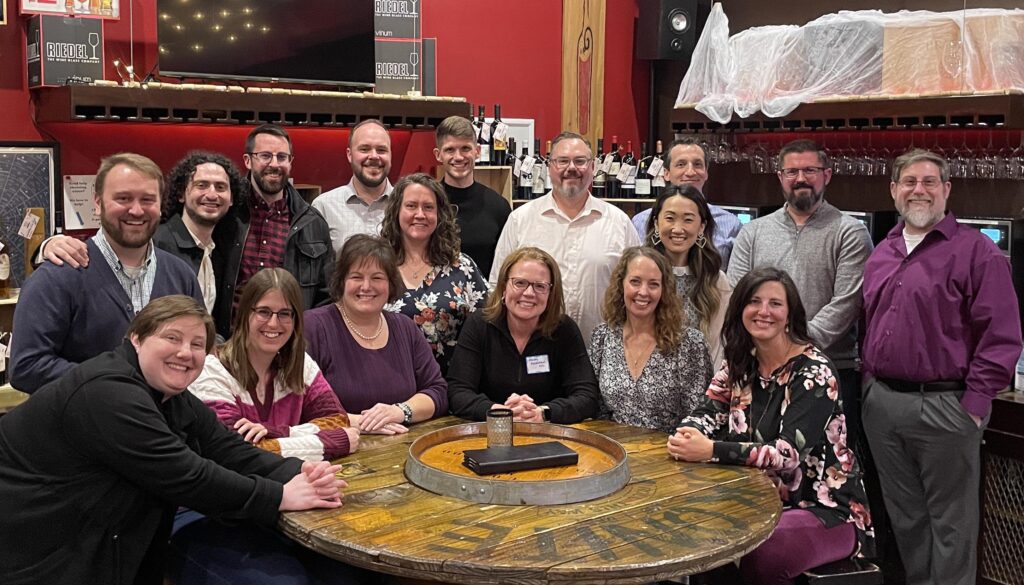
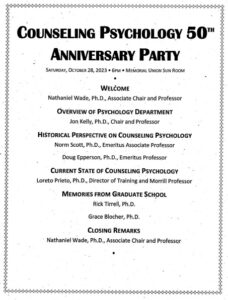 In the evening, we attended a banquet at the Memorial Union where current and former ISU faculty members and a former student shared historical facts about the department and memories of their time at ISU. Dr. Jonathan Kelly, current Chair of the Psychology Department, provided an overview of the Counseling Department. Dr. Norm Scott, ISU faculty from 1971-2017, summarized the intense and multi-year APA accreditation process that concluded in 1973 by designating ISU as the 15th Counseling Psychology Program to be accredited in the United States. The first programs to be accredited were University of Minnesota and Teachers College – Columbia University, both awarded in 1952. Currently, 80 Counseling Psychology programs have APA-accreditation in the United States.
In the evening, we attended a banquet at the Memorial Union where current and former ISU faculty members and a former student shared historical facts about the department and memories of their time at ISU. Dr. Jonathan Kelly, current Chair of the Psychology Department, provided an overview of the Counseling Department. Dr. Norm Scott, ISU faculty from 1971-2017, summarized the intense and multi-year APA accreditation process that concluded in 1973 by designating ISU as the 15th Counseling Psychology Program to be accredited in the United States. The first programs to be accredited were University of Minnesota and Teachers College – Columbia University, both awarded in 1952. Currently, 80 Counseling Psychology programs have APA-accreditation in the United States.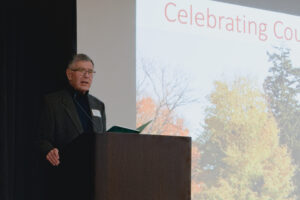 In addition to honoring the 50th anniversary of APA Accreditation, the evening also honored Dr. Norm Scott, who retired in 2017. Dr. Scott was an ISU Counseling Psychology faculty member for 45 years. Along with his many contributions to the field and to the department, Dr. Scott was appointed by Governor Robert Ray to the State Board of Psychology Licensure Examiners in 1979. He held the appointment until 1983 and chaired the Board from 1981-1983. Additionally, he was the IPA Membership Chair from 1987-1989. Dr. Scott is known for his positive and supportive interactions with colleagues and students. One of the speakers at the banquet, Dr. Rick Tirrell (‘78), was Dr. Scott’s first doctoral student.
In addition to honoring the 50th anniversary of APA Accreditation, the evening also honored Dr. Norm Scott, who retired in 2017. Dr. Scott was an ISU Counseling Psychology faculty member for 45 years. Along with his many contributions to the field and to the department, Dr. Scott was appointed by Governor Robert Ray to the State Board of Psychology Licensure Examiners in 1979. He held the appointment until 1983 and chaired the Board from 1981-1983. Additionally, he was the IPA Membership Chair from 1987-1989. Dr. Scott is known for his positive and supportive interactions with colleagues and students. One of the speakers at the banquet, Dr. Rick Tirrell (‘78), was Dr. Scott’s first doctoral student.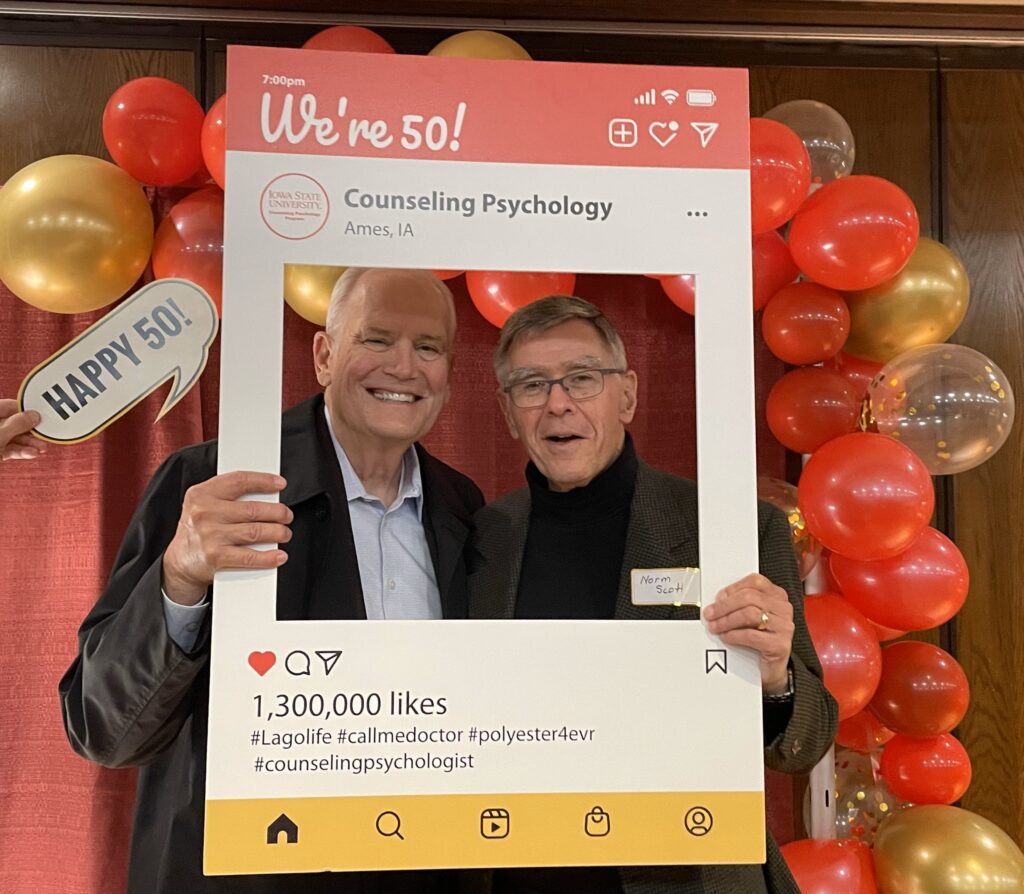
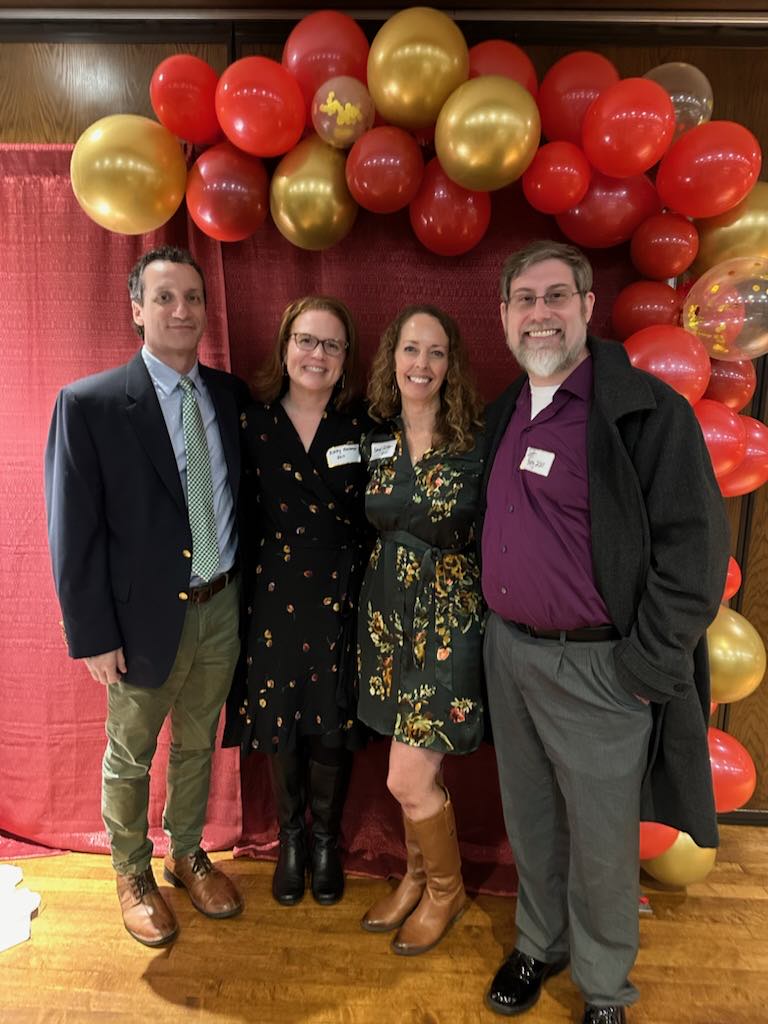
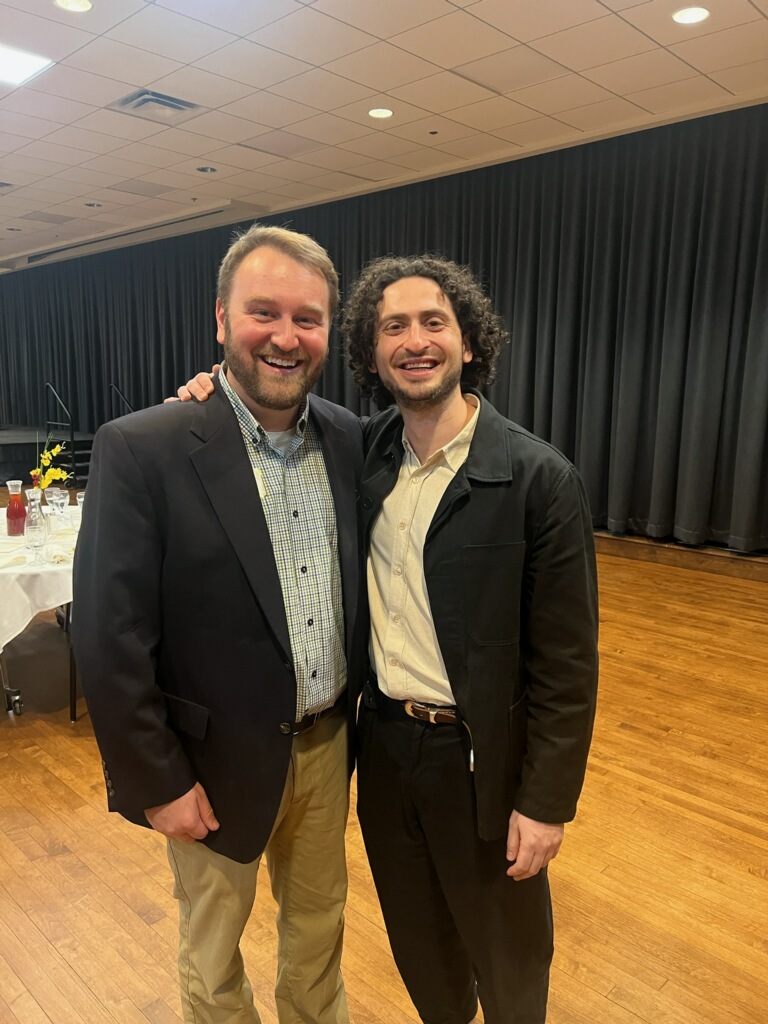
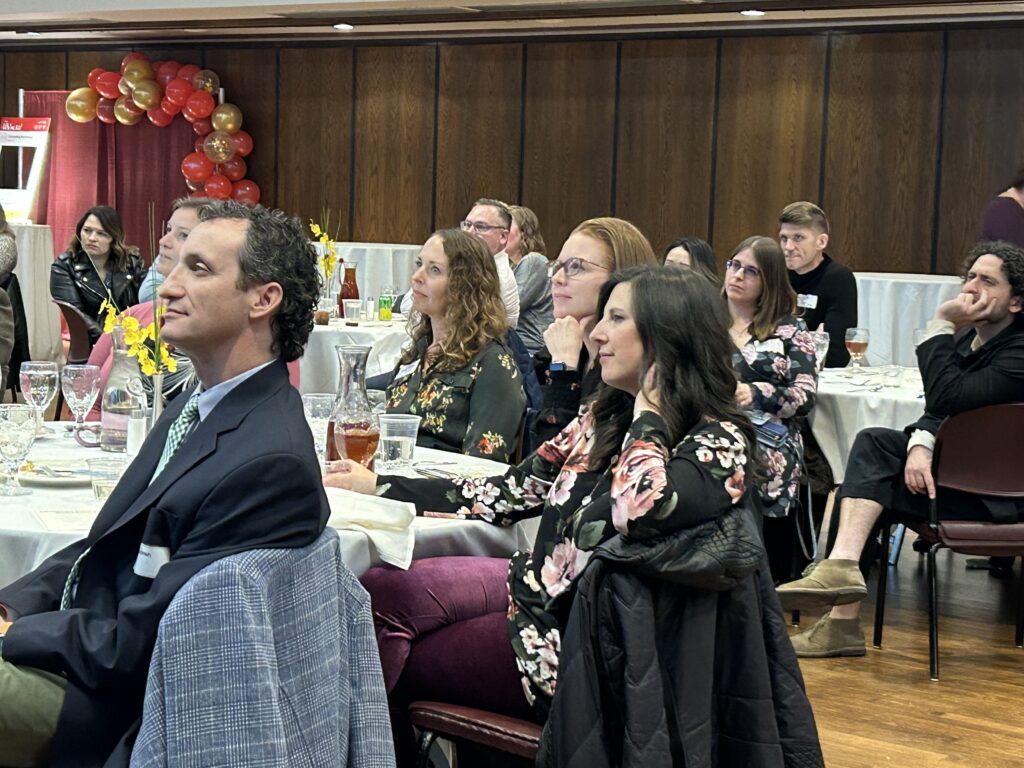
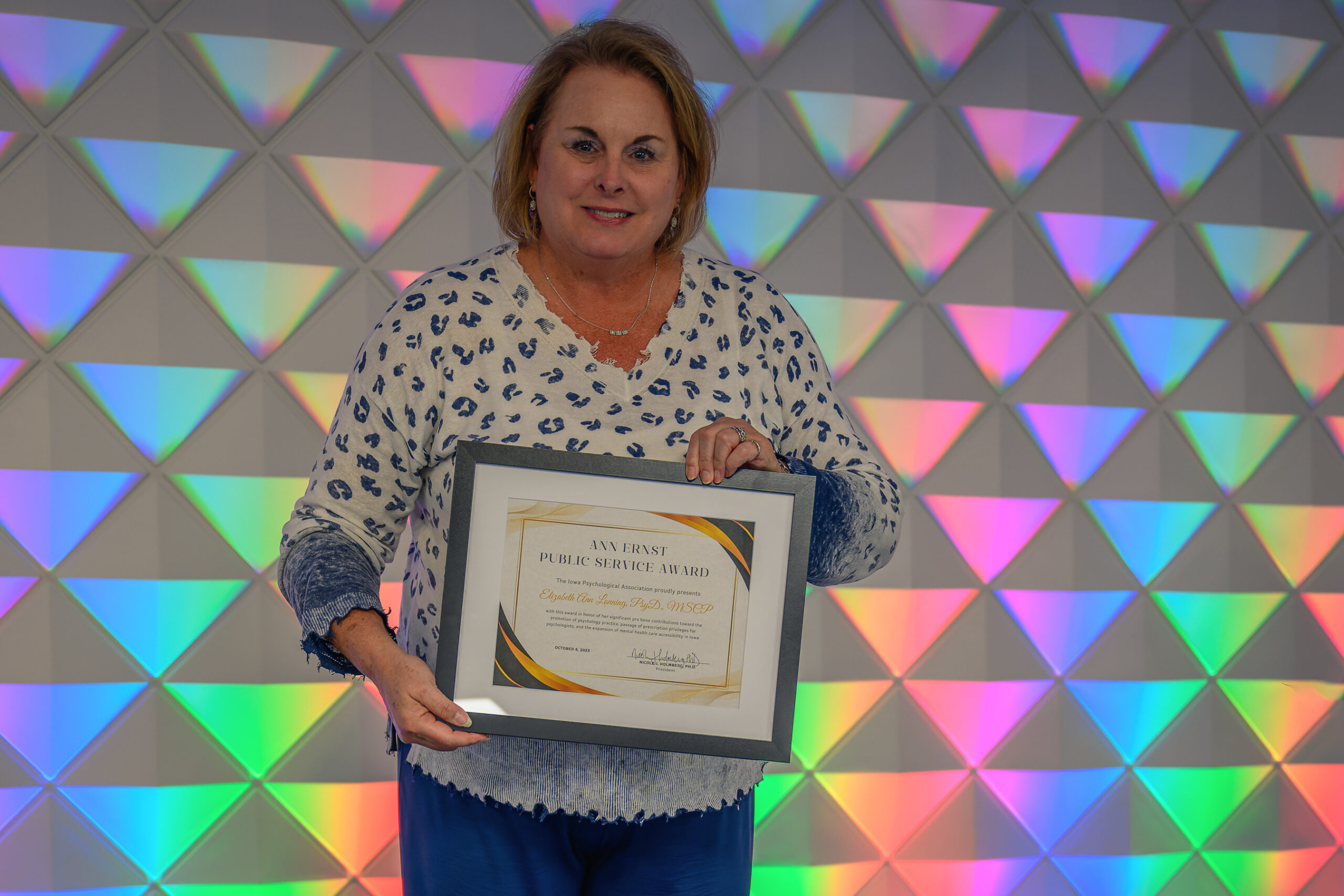
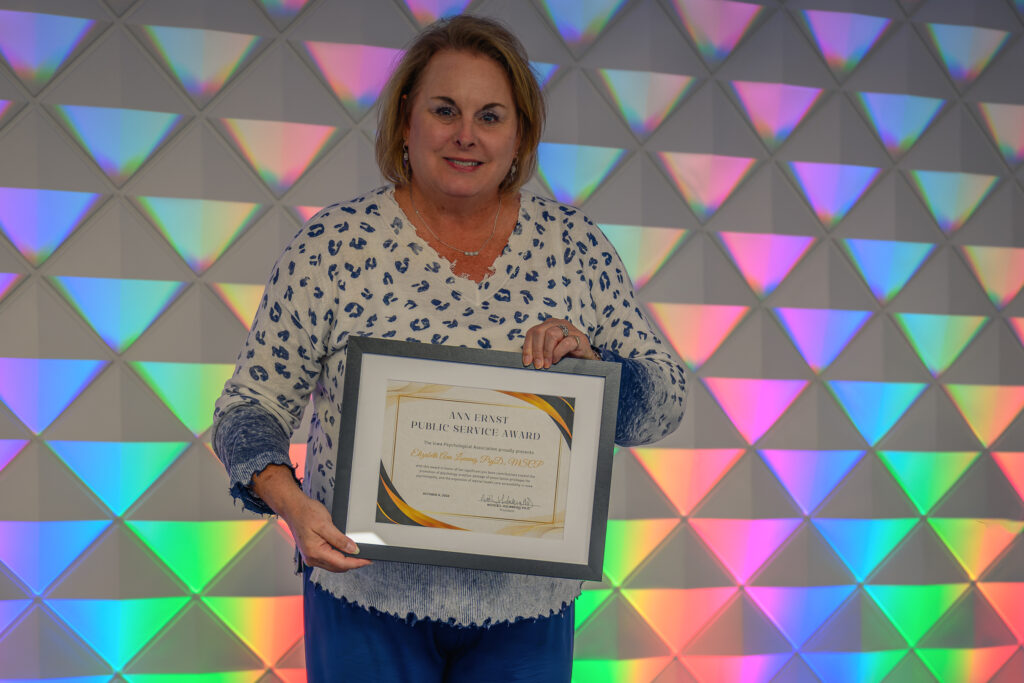
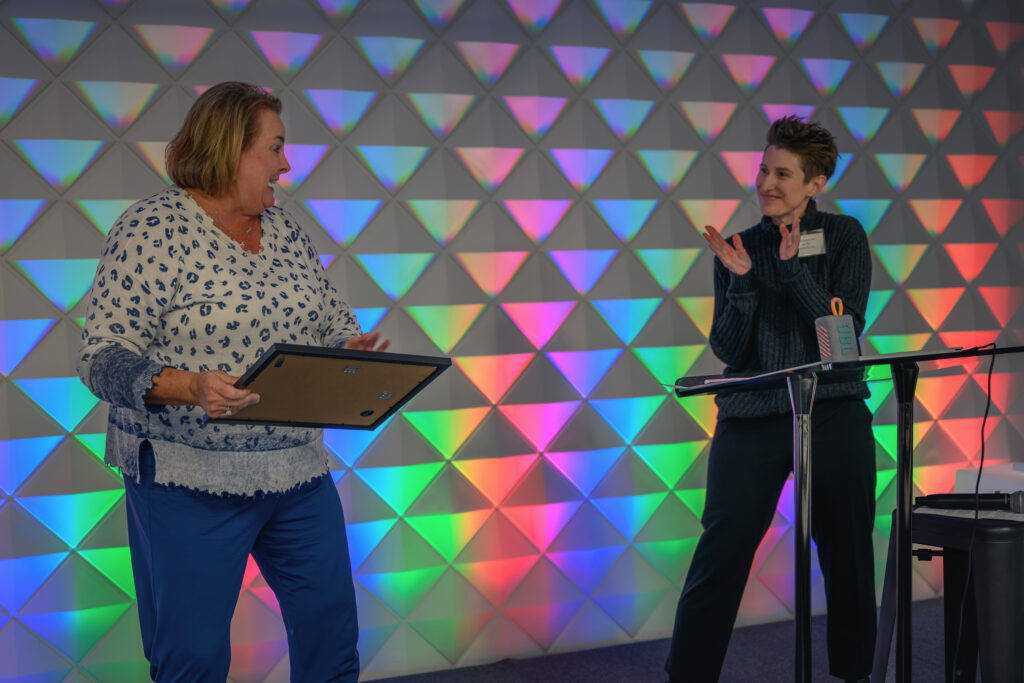
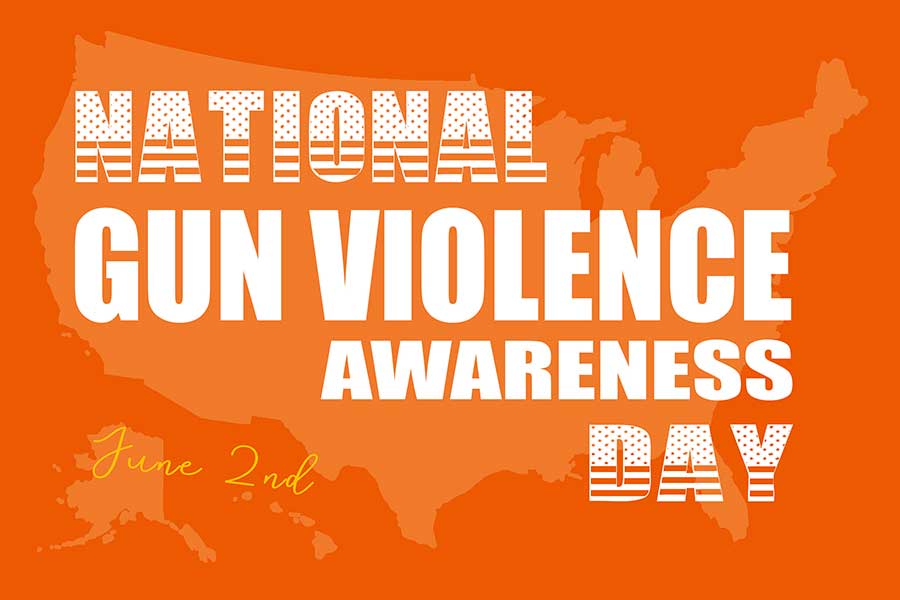
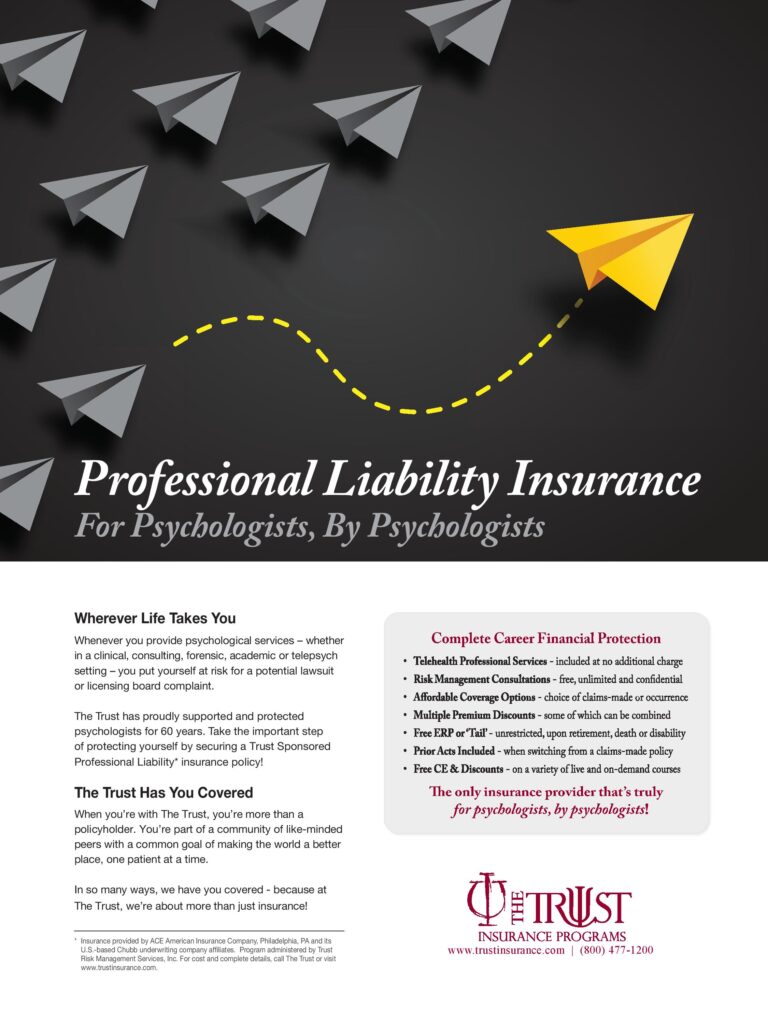

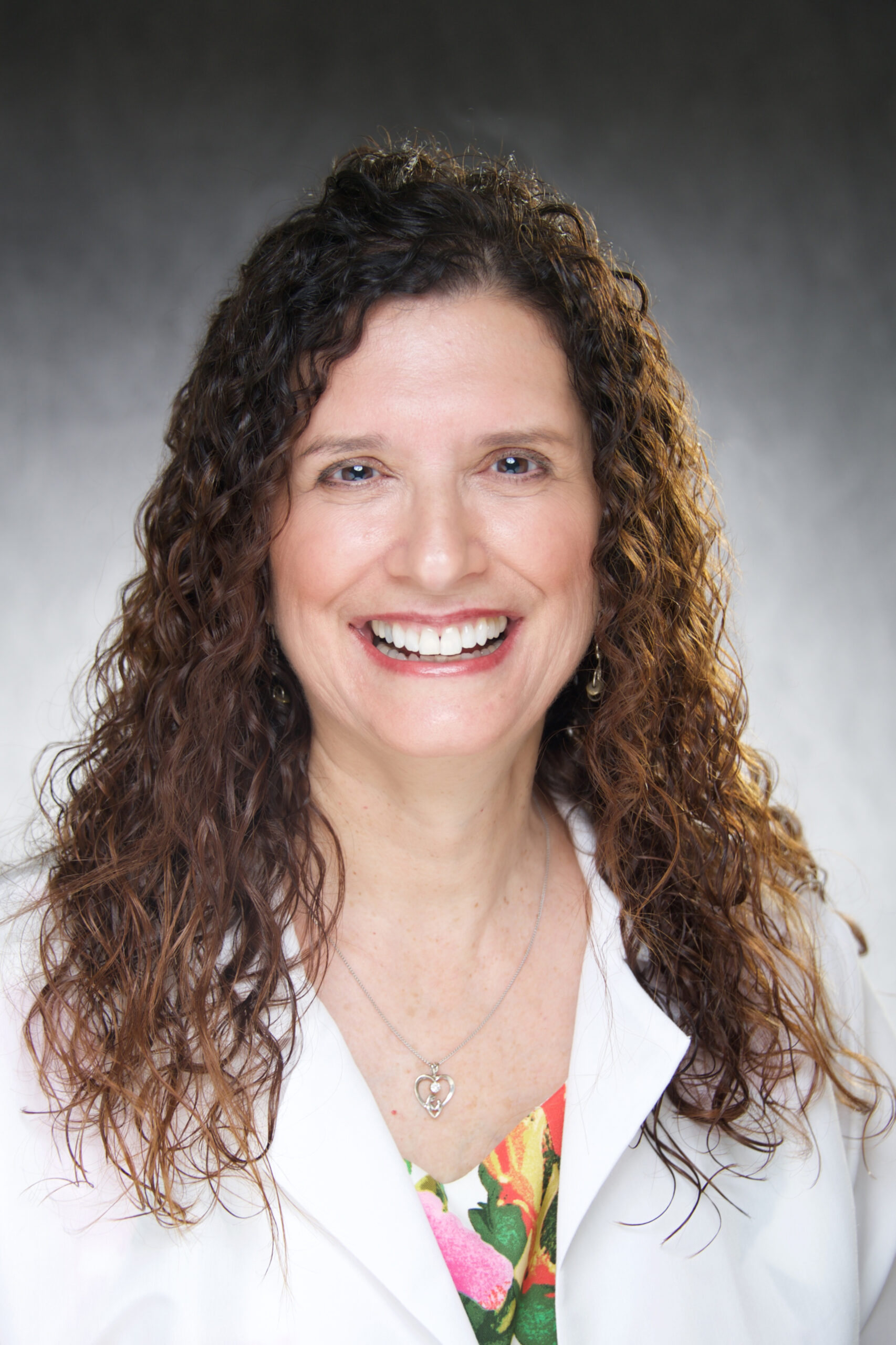
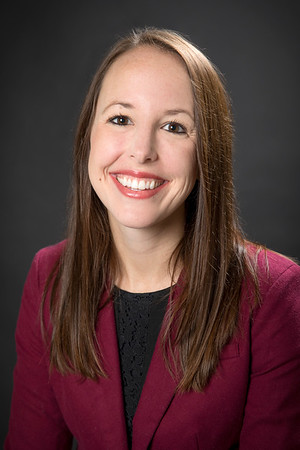
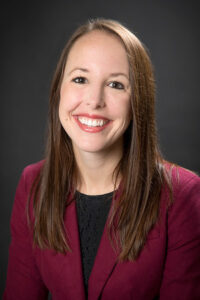 As part of my role on the Disaster Response Committee, I recently completed
As part of my role on the Disaster Response Committee, I recently completed 